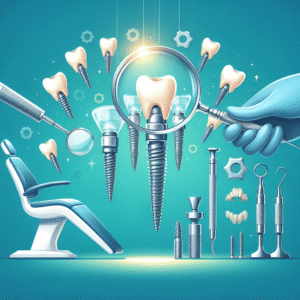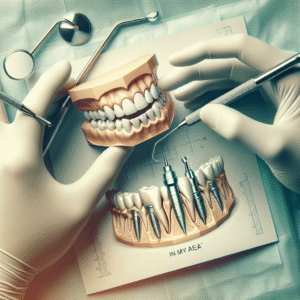All-on-4 Dental Implant Procedure Without Insurance
For many individuals suffering from extensive tooth loss or severe dental decay, the All-on-4 dental implant procedure offers a revolutionary solution to restore a full, functional smile. However, the cost of this treatment can be daunting, especially for those without dental insurance. This article explores the All-on-4 procedure, alternative solutions like Full-Arch Dental Implants and Implant-Supported Dentures, and financial considerations for patients paying out of pocket.
Understanding the All-on-4 Dental Implant Procedure
The All-on-4 technique is a state-of-the-art dental restoration method designed to replace an entire arch of missing teeth using just four strategically placed implants. Unlike traditional dentures, which can slip or cause discomfort, this procedure provides a permanent, stable foundation for prosthetic teeth.
How It Works
- Consultation and Planning: A thorough examination, including 3D imaging, determines bone density and implant placement.
- Surgery: Four titanium implants are surgically placed in the jaw—two vertically in the front and two angled in the back for maximum support.
- Teeth-in-a-Day / Same-Day Implants: Temporary prosthetic teeth are attached immediately, allowing patients to leave with a functional smile the same day.
- Final Restoration: After healing (3-6 months), a custom, permanent prosthesis is secured to the implants.
This approach minimizes the need for bone grafting for dental implants, making it ideal for patients with moderate bone loss.
Alternatives to All-on-4 Implants
While All-on-4 is a popular choice, other options may better suit certain patients:
Full-Arch Dental Implants
For those with sufficient bone density, Full-Arch Dental Implants use six to eight implants per arch for enhanced stability. This method is ideal for patients who want the most natural feel but requires a stronger jawbone.
Implant-Supported Dentures
A hybrid solution, Implant-Supported Dentures combine the affordability of dentures with the stability of implants. Fewer implants (typically two to four) are used to anchor a removable prosthesis, reducing costs.
Zygomatic Implants
Patients with severe bone loss may benefit from Zygomatic Implants, which anchor into the cheekbone (zygoma) instead of the jaw. This bypasses the need for extensive bone grafting but requires specialized expertise.
Cost of All-on-4 Without Insurance
The All-on-4 procedure is a significant investment, typically ranging from $15,000 to $30,000 per arch without insurance. Factors influencing cost include:
- Geographic location (urban areas tend to be more expensive).
- Surgeon’s experience and reputation.
- Materials used (titanium implants vs. zirconia prosthetics).
- Additional procedures (e.g., extractions, bone grafting for dental implants).
Financing Options
Since most insurance plans offer limited coverage for implants, patients often explore:
- Dental Loans: Specialized medical credit lines like CareCredit.
- Payment Plans: Many clinics offer in-house financing.
- Medical Tourism: Traveling abroad for lower-cost treatment (though risks exist).
- Charitable Programs: Some nonprofits provide discounted dental care.
Is All-on-4 Worth the Cost?
Despite the expense, the benefits often justify the investment:
- Permanent Solution: Unlike dentures, implants prevent bone loss and last decades.
- Improved Quality of Life: Restored chewing ability, speech, and confidence.
- Cost-Effective Long-Term: Eliminates recurring denture expenses.
Who Is a Good Candidate?
Ideal candidates for All-on-4 or Teeth-in-a-Day / Same-Day Implants include:
- Patients missing most or all teeth in an arch.
- Those with moderate bone loss (minimizing the need for grafting).
- Individuals seeking a faster alternative to traditional implants.
Preparing for the Procedure
Pre-Surgery Steps
- Comprehensive Exam: X-rays, CT scans, and health evaluations.
- Treatment Plan: Customized timeline and cost breakdown.
- Oral Health Optimization: Addressing gum disease or infections beforehand.
Post-Surgery Care
- Diet: Stick to soft foods initially.
- Oral Hygiene: Gentle cleaning around implants.
- Follow-Ups: Regular check-ups to monitor healing.
Risks and Considerations
While rare, complications may include:
- Infection or implant failure.
- Nerve damage (if implants are misplaced).
- Sinus issues (for upper-arch implants).
Choosing an experienced surgeon minimizes these risks.
Conclusion
The All-on-4 dental implant procedure offers a life-changing solution for tooth loss, even for patients without insurance. By exploring alternatives like Full-Arch Dental Implants, Implant-Supported Dentures, or Zygomatic Implants, individuals can find a treatment that fits their needs and budget. While the upfront cost is high, the long-term benefits—improved oral health, functionality, and confidence—make it a worthwhile investment for many.
For those considering this procedure, researching financing options and consulting with a qualified implant specialist are critical first steps toward achieving a healthy, complete smile.
Frequently Asked Questions
FAQ: All-on-4 Dental Implant Procedure Without Insurance
1. What is the average cost of the All-on-4 dental implant procedure without insurance?
The average cost ranges between $15,000 to $30,000 per arch, depending on factors like location, dentist expertise, and additional treatments required.
2. Are there financing options available for the All-on-4 procedure if I don’t have insurance?
Yes, many dental clinics offer payment plans, third-party financing (like CareCredit), or in-house discounts to help make the procedure more affordable.
3. Can I get the All-on-4 procedure done abroad to save money?
Yes, some patients opt for dental tourism, where countries like Mexico or Costa Rica offer the procedure at a lower cost. However, research the clinic’s reputation and potential travel risks beforehand.
4. Are there alternative treatments to All-on-4 implants that are more affordable?
Options like traditional dentures or implant-supported dentures may be cheaper, though they may not provide the same stability or longevity as All-on-4 implants. Discuss alternatives with your dentist.




